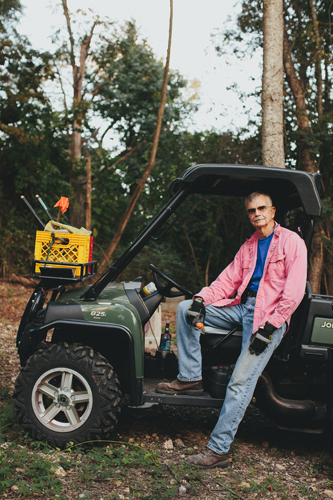
David Young, IM 63, has spent three decades cleaning up an abandoned historic cemetery in Chattanooga, Tenn.
David Young, IM 63, has spent three decades cleaning up an abandoned historic cemetery in Chattanooga, Tenn. He works almost entirely alone, without help or publicity. He knows the work will outlive him—and he fears it will be what kills him. What keeps him going?
In ancient Greece, the story goes, there lived a man named Sisyphus—a powerful man, the founder and king of Corinth—who was so proud that he spurned the gods and tried to cheat death. For these transgressions, he was punished, banished to the underworld and made for all eternity to roll a boulder up a hill, reach the summit, watch the rock crash all the way back down, follow it, then start all over again. ¶ Here is another man, in another time, another world. David Young is not overly proud and he is certainly no king. But he too once stood at the bottom of a hill, looked up at the summit and saw his fate—his own land of the dead, the crumbling, overgrown cemetery that he has shouldered all responsibility for over the last three decades and counting.
Like Sisyphus, David toils alone; unlike the punished man, David’s burden was a choice. Yet no explanation of his devotion seems to suffice. He values the cemetery’s history, enjoys the feeling of working hard without hope of reward or recognition, thrives on the structure and sense of purpose it gives his life—yes, all these things are true.
But he has committed himself to the cemetery so fully, it is as if the cemetery owns him, as if his actions are nudged along by some force much greater than mere human motives. There is something else at play, that unknown element complicit when a person commits to an act beyond standard human kindness—that mystery of service, the ineffable arithmetic of someone giving and giving and giving of themselves until they are both nearly gone and, somehow, even more fully alive.
